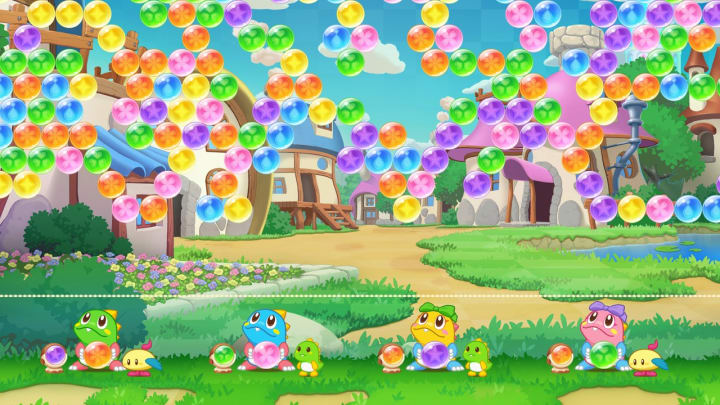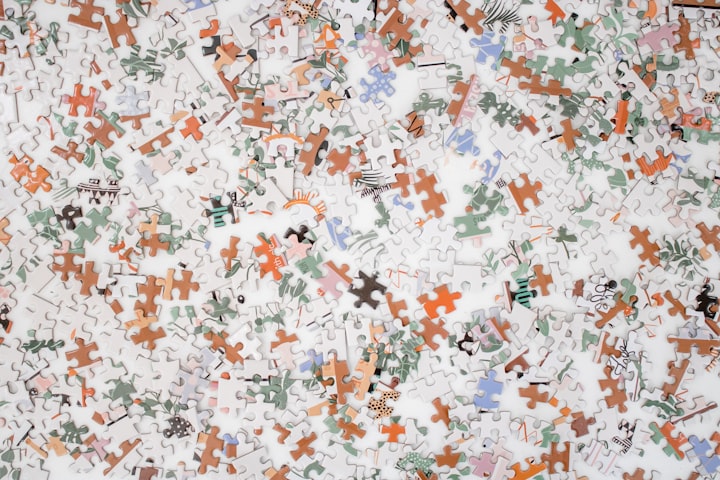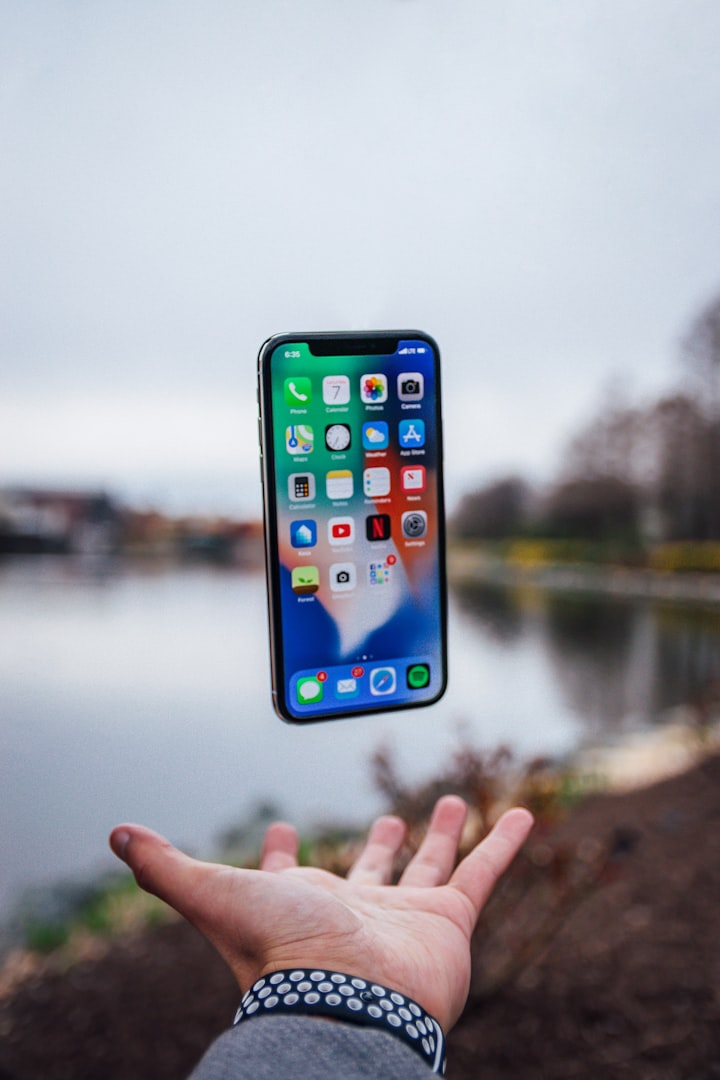The Scientifically Proven Health Benefits Of Puzzling For Children
Why you should get your child to pursue this fun, intellectual and brain-healthy pastime!
These kinds of puzzles are visual-based puzzlesWhat is a puzzle?
A puzzle is a game or a toy that tests a person’s intelligence and knowledge. Puzzles can be used as an educational tool for elementary and secondary school students, a therapeutic approach for children with disabilities like Autism and Global Developmental Delay. Puzzle solving is also a common pastime for the elderly.
Doing a puzzle can also be a form of cheap, easy, and in-home entertainment at any time of the week.
In this informative blog, you'll learn about the different kinds of puzzles and their benefits!
Digital Puzzles

With many people using their electronic devices such as iPhones and iPads, digital puzzles such as Tetris, Puzzle Bobble and Candy Crush Saga can be downloaded and played for free. Tetris can also be downloaded and played on various PC gaming websites for free. Games like Puzzle Bobble and Tetris became popular in the 80’s and 90’s, when video game systems like Nintendo and computers were first used by kids and youth. Digital puzzles do not only have the same benefits as traditional puzzles, but they can also be an advantage for people who have poor motor skills.
Jigsaw Puzzles

These kinds of puzzles are visual-based puzzles and require the assembly and fitting of pieces to complete an image. Jigsaw puzzles are enjoyed by all kinds of people, but are mainly favoured by kids. Jigsaw puzzles are usually completed by yourself, however families and friends also enjoy doing puzzles together. Jigsaw puzzles can be played digitally, but can also be purchased at stores such as Walmart, Toys R Us and various bookstores. Popular puzzle brands include Ravensburger, Ceaco, Buffalo Games, Masterpieces, Eurographics and Cobble Hill. There are various themes like fantasy, pop culture, food/beverage, landscape, and history and the amount of pieces range from 20–18000 pieces. Many people tend to do 20–2000 piece puzzles, depending on level of difficulty, age, patience and concentration levels and the amount of puzzle space.
Word Puzzles

For people who enjoy learning new words and building their literacy skills for life, these vocabulary-based puzzles are offered digitally and manually. Digital word puzzles such as Bonza, Words with Friends, Kitty Scramble and Letter Fridge can be downloaded and played for free on all IOS and/or Android devices. Classic word puzzles such as Word Hunts, Crosswords, Anagrams and Jumble can be found in giant or pocket-sized puzzle books that are purchased on Amazon, from the local convenience stores and from the local bookstores. Crossword puzzles and other paper-and-pen word games are also found in other reading material such as newspapers.
Mathematical/Logical Puzzles

These kinds of puzzles are a basic part of recreational mathematics, with specific guidelines. Mathematical and logical puzzles are usually one player games and do not require two or more players to compete. Depending on the nature of each puzzle, some mathematical ability is necessary to solve these kinds of puzzles. There are heaps of mathematical and logical puzzles, but the few that are common include logic puzzles, sudoku, and kakuro. Sudoku, kakuro, and logic puzzles can be played and downloaded on all IOS and/or Android devices for free, or you can purchase giant logic/mathematical puzzle books from the local bookstores or the local dollar stores. Sudoku, logic and kakuro puzzles can also be found in magazines and newspapers that you can either purchase for $1.00–$2.00 or get them for free.
Tile/Sliding/Cube/Disentanglement Puzzles

Unless offered digitally, puzzles such as Tangrams, and the 15 puzzle are all touch-based, because you use your hands as you solve the puzzle. Touch-based puzzles are usually made from wood, paper and plastic and can be bought online or from your local toy/hobby store. For anyone who does not enjoy the manual versions can also download these classic puzzles on their electronic devices for free. Some of these puzzles are paid applications and are easy to find through the App store.
Other health-related benefits of puzzles??
Nowadays, many people are keeping busy with their electronic devices, which takes up most of their free time, especially among youth. With many people wanting to break the habit of excessive social media and phone use, there are many activities that would be of benefit to their overall well being, including puzzles. Puzzles are not only a productive and healthy way to relax. Puzzles can be a fantastic phoneless and screenless hobby to pursue with family, friends and even by yourselves. For people that are gregarious and enjoy spending time with people on a regular basis, puzzles are a great replacement to going out every Friday night.
Puzzles have similar health advantages to meditation. While we are meditating, we are training our minds to focus on the present, and our goals that we want to achieve. Puzzles are constantly keeping our minds focused on the common goal and the present moment. Puzzles increase our attention span, which can be beneficial for the long-term success and well being of students.
Puzzles also have hormonal health benefits. Puzzles help the brain to produce dopamine, which is a neurotransmitter that generates between the nervous system and the brain and tells the body when and how to perform particular tasks and functions. Dopamine also helps us to respond to breakthroughs and minutes and causes improved motor skills, enhanced concentration, positive energy, confidence and the ability to recollect information. Dopamine is connected to reward-driven understanding and increased dopamine levels help the brain to reinforce understanding. Dopamine gives the mind the innate desire to form more conducive and appropriate brain chemistry. In connection to puzzle solving, dopamine is the mere reason for the human desire to solve puzzles.

Benefits of puzzling for children
Puzzles have many important benefits for child development. Typically, children begin with simple knobbed puzzles with simple shapes that correspondently fit into board cutouts. As children progress, they move onto complex silhouettes that include real-world objects and require more consideration. As children mature and their cognitive levels improve, they move onto doing jigsaw puzzles with varying complexities.
When children are alone with a puzzle, they have the opportunity to build on three major skills: physical, cognitive and emotional skills. The cognitive skills include the child’s improvement in focus, problem-solving and the ability to remember information. Physical skills such as motor skills, holding and turning are taught to children through puzzle solving. Necessary emotional skills that are taught to children include patience, and the feeling of accomplishment which can be experienced once a puzzle is complete. The emotional, cognitive and physical skills are building blocks for healthy human development. Once a child successfully master these skills, he/she will be able to function well at school, in the community, at home, and will begin to apply these skills in the next stages of life.

Thank you for taking the time to read another one of my informative blogs. If you enjoyed reading this article, please give it a ♥️, share it with others, comment and send me a tip/pledge to show your appreciation and support. To find and read more exciting content, please consider subscribing and visiting my public profile. Stay tuned for more poems, articles, recipes, and much more awesome content!
Please feel free to connect with me outside of Vocal!
IG: @tdwrites24
FB: Talia Devora
You can also read this article on Medium!
References
S. (2021, February 11). Brainteasers Puzzling tips and benefits of the puzzle hobby. Retrieved February 16, 2021, from https://selecthobby.com/puzzling/
Manno, M. (2013, November 28). The Benefits of Puzzles in Early Childhood Development — Blog. Retrieved February 16, 2021, from https://teach.com/blog/the-benefits-of-puzzles-in-early-childhood-development/
R. (2019, October 1). What are the benefits of puzzles? Retrieved February 16, 2021, from https://bb.ca/en/articles/article/what-are-the-benefits-of-puzzles/159/

About the Creator
Talia Devora
Poetess, visual artist and lifestyle/quiz writer! My pastimes include reading, sleeping, gaming, music, fitness, etc! Be yourselves, be kind and value life! Let's connect and be friends!
My IG accounts: @tdwrites24 & @tdcreates97







Comments (1)
I totally agree, it help also with focus and patience skills. It’s amazing how children learn do put together a possible especially you are not hovering while the do the puzzles